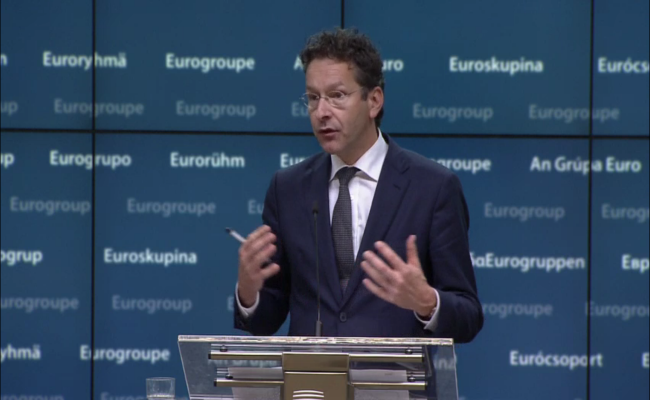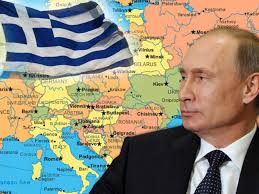By Holly Ellyatt | Julia Chatterley, CNBC
The Greek bailout program is not heading for a crisis, the head of the Eurogroup of euro zone finance ministers told CNBC on Thursday, saying that a deal on a reform package that will unlock more loans to the country was near.
“We’re getting very close (to an agreement over reform targets) so I’m not for all this crisis talk. If we concentrate on where we are and try and push it through we’ll get it done far before the summer,” Jeroen Dijsselbloem said, adding that there was “hopefully” no danger of Greece facing a credit line before more bailout money can be released.
He added that once Greece hit targets over pension reform, income taxation and privatization, among other issues, “then we will come to debt and see what needs to be done now or later.”
Since a third 86 billion euro ($96.8 billion) bailout for Greece was agreed last year after months of fraught negotiations with the Greek government, relations between the country, its creditors and its euro zone partners have not been easy with Greece asked to introduce sweeping reforms to its economy.
In the meantime, the issue of debt relief has remained, with Greece saying that it must have its debt burden cut if it is to return to growth. Some countries in the euro zone, such as Germany, are not keen for Greece to receive more debt relief, although the IMF has demanded it as a pre-requisite for its participation in the financial aid package.
On Thursday, the IMF’s Director Christine Lagarde reiterated that the fund would not abandon the “troika” of bodies involved in financing and overseeing the country’s bailout program (the IMF, European Commission and European Central Bank) but that its participation would depend on how the bailout was structured.
“We will not walk away,” Lagarde said during a question-and-answer session at the IMF and World Bank spring meetings, Reuters reported. “Our form of participation may vary depending on the commitments of Greece and the undertaking of the European partners, but we will not walk away.”
Lagarde repeated earlier comments that Greece needed debt relief but said that did not necessarily mean a “haircut” on debt principal but rather that the IMF was open to an extension of maturities or reduced interest rate on the debt.
Dijsselbloem told CNBC that Europe was ready to discuss debt with Greece but said it was crucial that the IMF was involved in the bailout program.
“I think the Greeks fully understand that the involvement of the IMF is very important for the European partners. The IMF is actually helping Greece where the issue of debt is concerned because the IMF is saying that the debt is unsustainable and the Europeans need to do more. Whether we do need to do more, how much and when,, is yet to be debated but the IMF basically supporting Greece there.”
“So I really need the IMF on board to get the right balance and to get the firm kind of balance that we need,” he said, adding that debt relief talks were on the horizon.
“We’ve promised Greece that if necessary, we will do more to relieve their debt burden and that promise still stands, and in the coming weeks we will need to debate what more is needed. What I cannot accept is that the IMF leaves, I need their involvement. Financially they’re involved but on substance they’re also very valuable, they have a lot of experience and they keep us focused. They make sure what we do is credible and that we stick to what we have agreed so for me the IMF is crucial.”



















